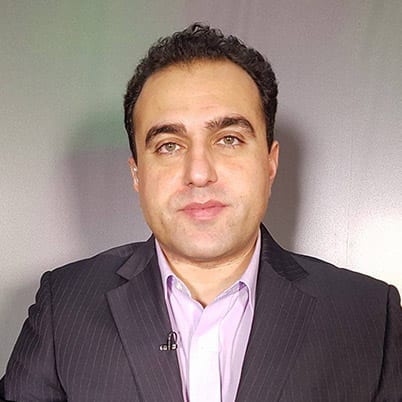The Iraqi parliamentary elections in May has predictably been followed by a drawn-out process of complex manoeuvring and negotiations to determine the complexion of the new government. When it first emerged that Moqtada al-Sadr’s Al-Sairoon (the Marchers) block had come on top in the elections, speculation grew that Iran would be sidelined in the new government.
The mercurial cleric has spent the better part of the past few years distancing himself from Iran, even to the extent of appearing to court rival Saudi Arabia. Equally worrying for Iran, Sadr’s electoral victory unfolded in the context of Shia political fragmentation, with the pro-Iranian vote splintered across four political blocks.
However, reports that Sadr is in talks with the staunchly pro-Iranian Fatah (Conquest) alliance, led by veteran Badr Corps commander Hadi al-Ameri, is clearly indicative of Iran’s decisive influence on Iraqi politics. The coalition talks between Sadr and Ameri have reportedly been brokered by the Iranian embassy in Baghdad – and by extension Major-General Qasem Soleimani, the powerful commander of the Quds Force who runs Iran’s Iraq policy.
Reports that Sadr is also talking to Prime Minister Haider al-Abadi with a view to form a governing coalition does not necessarily diminish the importance of his partnership with Ameri. The new reports must be seen in the context of the long and complex negotiations which are required to form a new government. And at the end of the day Sadr is more likely to work closely with Ameri than he is with Abadi.
Read: On the fire that ruined Iraq’s elections
By joining up Sadr and Ameri Iran stands to fully leverage its influence over Iraqi Shia political blocks and thus deepen the connectivity and legitimacy of the various Shia paramilitary groups that are connected to Ameri’s Conquest block. Furthermore, Iran moves several steps closer to achieving one of its most important goals, namely to drive out the US and the UK from Iraq.
An important election
This year’s Iraqi parliamentary election was arguably the most important of the post-Baathist era for three reasons. First and foremost, Iraq has just defeated the gravest threat to its sovereignty – in the form of Daesh – since gaining independence in 1932. Second, Iraq has also just overcome a threat to its territorial integrity in the wake of last September’s ill-fated Kurdish independence referendum. Third, the country is struggling with endemic corruption and associated widespread collapse of public confidence in the governing class.
The fight against Daesh has proven to be a big boost to Iran’s position in Iraq. The potent threat posed by the bogus caliphate was the main driver behind the creation of the Popular Mobilisation Forces (PMF) who by most credible accounts have developed into the most dependable and skilful layers of the Iraqi security apparatus.
Hadi al-Ameri’s Fatah alliance is effectively the political cover for the Shia-led paramilitaries which comprise the PMF. By performing well in the elections (Conquest captured 47 seats in parliament behind Al-Sairoon’s 54 seats), Ameri had already placed himself in a good negotiating position to determine the makeup of the next government and crucially to select a new prime minister. The alliance with Sadr only improves that position.
Read: Iraq parliament speaker calls for new elections
On the Kurdish front, the relatively poor performance of the Kurdish blocks in the elections has only deepened their disarray since last year’s ill-fated referendum campaign. Iran played a decisive role in pushing back against Kurdish irredentism in the wake of the illegal independence referendum, as it was widely reported that Quds Force commander Soleimani had warned Kurdish leaders to withdraw from Kirkuk before masterminding the retaking of the city by a combination of regular Iraqi forces and the PMF.
On corruption and the widespread feeling of discontent, the poor performance of Prime Minister Haidar al-Abadi – his Nasr (Victory) coalition came third with 42 seats – is not just a boon to Iran, but also an opportunity to address systemic corruption and institutional malaise in Iraq. Despite pledging to wage “war” on corruption, Abadi has done little to restore public confidence in Iraq’s chronically corrupt and inefficient institutions. His removal from office could at least signal that there is sufficient political will to address the most difficult and deep-rooted socio-economic challenges.
Ousting the United States
It is an open secret that the US was rooting for Abadi in the elections. The biggest problem for Washington is not so much that Abadi lost the elections, but that the winners pursue a set of political and strategic agendas which are decisively inimical to American interests in Iraq.
For a start, Muqtada al-Sadr is nowhere near as anti-Iranian as Western and Arab commentators are making him out to be. Whilst Sadr has taken very calculated steps in recent years to distance himself from the Islamic Republic (by principally courting neighbouring Arab states including Saudi Arabia and Jordan), the social and political movement that he leads is both profoundly fragmented and penetrated at every level by pro-Iranian elements.
Read: Iraqi premier and cleric Sadr to form coalition
By contrast, by adopting an unflinchingly Iraqi nationalist agenda, Sadr is unequivocally, and potentially violently, opposed to US and UK interests in Iraq. Moreover, Sadr’s coalition partners, headed by the veteran paramilitary and political operator Hadi al-Ameri, not only oppose key US interests in Iraq, but on account of their regional operations (Iraqi paramilitaries are involved in the Syrian conflict), they are also opposed to the overall American regional posture.
Essentially all the elements are in place for Iran to further sideline the US in Iraq. Having long been competitors for influence in post-Baathist Iraq, the next four years may witness Iran gaining an unassailable advantage, possibly even ousting the Americans altogether in the event of a direct military clash between the US and pro-Iranian forces.
The views expressed in this article belong to the author and do not necessarily reflect the editorial policy of Middle East Monitor.









